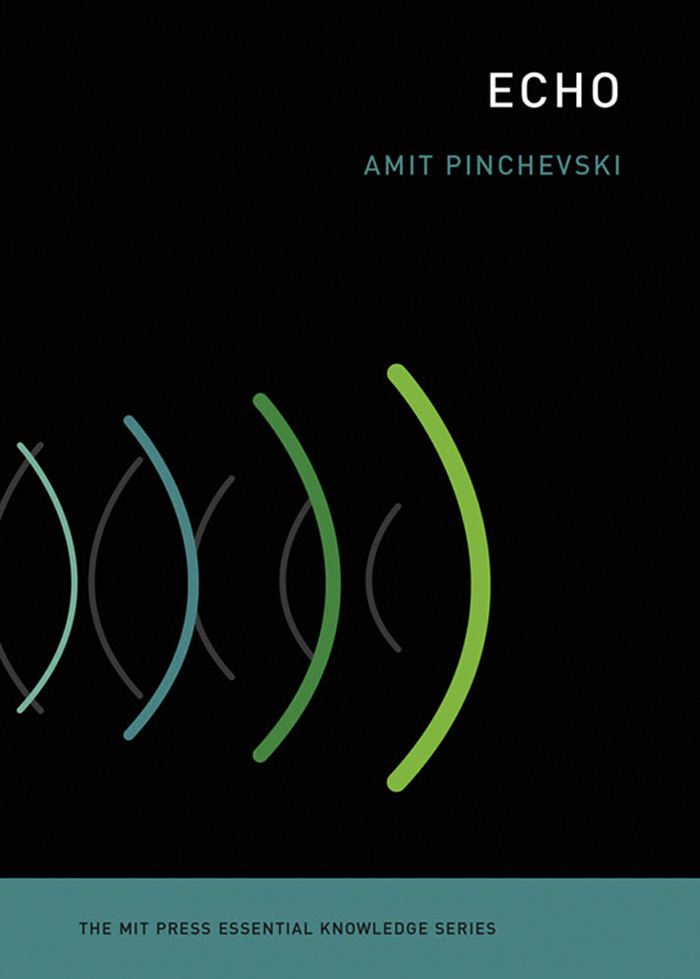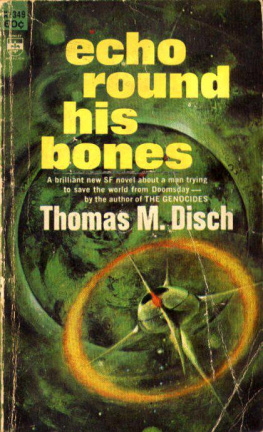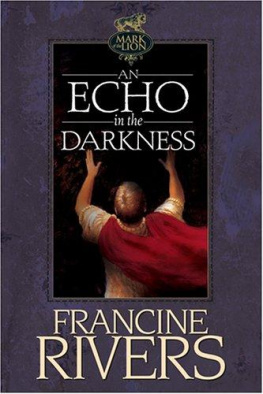
Echo
The MIT Press Essential Knowledge Series
A complete list of books in this series can be found online at https://mitpress.mit.edu/books/series/mit-press-essential-knowledge-series.
Echo
Amit Pinchevski
The MIT Press | Cambridge, Massachusetts | London, England
2022 Massachusetts Institute of Technology
All rights reserved. No part of this book may be reproduced in any form by any electronic or mechanical means (including photocopying, recording, or information storage and retrieval) without permission in writing from the publisher.
The MIT Press would like to thank the anonymous peer reviewers who provided comments on drafts of this book. The generous work of academic experts is essential for establishing the authority and quality of our publications. We acknowledge with gratitude the contributions of these otherwise uncredited readers.
This book was set in Chaparral Pro by New Best-set Typesetters Ltd.
Library of Congress Cataloging-in-Publication Data
Names: Pinchevski, Amit, 1971- author.
Title: Echo / Amit Pinchevski.
Description: Cambridge, Massachusetts : The MIT Press, [2022] | Series: The MIT Press essential knowledge series | Includes bibliographical references and index.
Identifiers: LCCN 2021014620 | ISBN 9780262543408 (paperback)
Subjects: LCSH: Echo in literature. | Echo (Greek mythology) in literature. | LCGFT: Literary criticism.
Classification: LCC PN56.E264 P56 2022 | DDC 809/.93384dc23/eng/20211115
LC record available at https://lccn.loc.gov/2021014620
10987654321
d_r0
Contents
Series Foreword
The MIT Press Essential Knowledge series offers accessible, concise, beautifully produced pocket-size books on topics of current interest. Written by leading thinkers, the books in this series deliver expert overviews of subjects that range from the cultural and the historical to the scientific and the technical.
In todays era of instant information gratification, we have ready access to opinions, rationalizations, and superficial descriptions. Much harder to come by is the foundational knowledge that informs a principled understanding of the world. Essential Knowledge books fill that need. Synthesizing specialized subject matter for nonspecialists and engaging critical topics through fundamentals, each of these compact volumes offers readers a point of access to complex ideas.
1
Echology
Echo is a joke of playful Nature. The poets call her image of voice, following Virgils where hollow rocks re-echo to the impulsive sound, and the struck image of the voice rebounds. The philosophers call her reflection, repercussion, reciprocation of voice; and the Hebrews call her Bat col, the daughter of spoken voice, whose nature remains hidden, so to this day hardly anyone has explicated the secret.... I left nothing untried in searching the hidden recesses of forests and mountains, the hidden retreats of valleys, plains of stone rubble, and flat marshes; I left nothing untried in exploring her mysterious nature. But as I pursue her, she runs away; as I run away, she pursues me; as I gently speaks, she mockingly responds, redoubling her voices by taking on additional voices like attendants, for she is incapable of yielding.
So begins the classical treatise on echo by the seventeenth-century polymath Athanasius Kircher. A German Jesuit, Kircher was a scholar of encyclopedic knowledge in multiple fields, including biology, geology, religion, music, Egyptology, language, and medicine, to which he contributed some forty volumes of exacting studies. His 1650 Musurgia Universalis encompasses, in addition to a treatise on echo, chapters on musical harmony, rhythm, scales, and musical instruments. Kirchers opening passage portrays echo as a cunning creature whose manifestations conflate human and nonhuman, cultural and natural. Echo is both sound and voice, passive and active, figure and phenomenon, yet always fleeting and surreptitious. Echo is unmistakably a female character, a fact that is consistent throughout the history of Western culture, from Echo the Greek nymph to Echo the voice-activated smart speaker from Amazon. Other early modern thinkers of Kirchers time, such as Giuseppe Biancani, Marin Mersenne, Gaspar Schott, and Francis Bacon, were likewise fascinated by echo, which they deemed an object of interest for exploring sound more generally. Kircher, who has been called the last man of the Renaissance, was exemplary in his holistic approach to echo, which has evaded many of his successors. Employing a holistic approach today, in a time of academic and scientific subspecialties, might seem anachronistic if not uninformed. And yet, as I hope to show in the following pages, a renewed fascination with echoas well as a revival of something of the holistic approach of its early explorersis not only intellectually rewarding but may well provide new insights into present-day engagements with echo and echoing.
For far too long echo has been reduced to simple repetition and the reproduction of sameness. This book seeks to rediscover the richness of echo, revealing it as an agent of creative possibilities across nature and culture. Echos reach extends from mythology to poetry, from rhetoric to technology, from physics to philosophy, from bats to submarines. Its expressive potential stretches from the acoustic to the vocal, the discursive, and the metaphorical. Is there a thread running from the mythological Echo, to the physical phenomenon, to the literary and rhetorical devices that draw on echoic effect? From the poetical echo, to echo techniques such as echolocation and sonar, to infantile echolalia? I believe there is such a thread, and in what follows I begin to pull it out. To be sure, my intention is not to encompass all the various instantiations of echo across and within different fields; such an enterprise would be presumptuous. My goal is, rather, to focus on a number of key topics that speak to the multifarious connections that echo fosters, and to the transformative role it plays therein. At issue are the affinities and parallels echo enacts across and amid diverse disciplinary fieldsthe ways echo echoes across nature and culture. It is the interconnecting function of echo, its intermediate position, that will be at the center of the exploration.
Taking a cue from the mythological Echo, who turned the curse of repeating the last words of others into resourceful maneuverings, this study explores the ways echo introduces variation into sameness and, in so doing, mediates between self and other, inside and outside, known and unknown, near and far. Echo involves response and repetition, but also delay and differentiation. Strictly speaking, it denotes a sonic reflection of an emission bouncing back to its origin. The physical definition speaks of a specular reflection, or mirrorlike, where sound waves reflect back from a sufficiently large and smooth surface at an angle equal to the incident one. The round trip between emission and reception, if long enough to be perceived, is what creates the psychoacoustic effect of time-delayed repetition. Ostensibly, this formulation does not seem to leave much room for creative or inventive potential. Normally we would not expect to find originality in recurrence. And yet, it is my contention that not only is echo creative and inventive, but it is so precisely because of being restrictive and replicative. If echo is a joke of nature, as Kircher splendidly put it, it is owing to its/her slyness, having the potential to bring back something unexpected, either more or less than what was sent. That such a potential is often associated with a female voice and figure will prove to be of much significance throughout.
Next page












